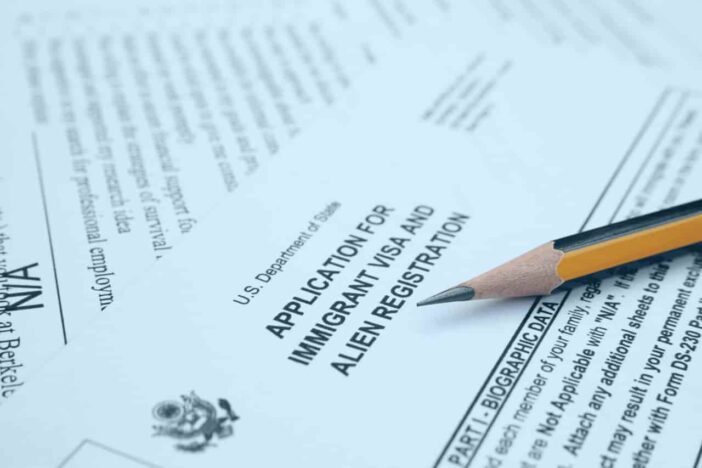In 2017, there were about 22 million immigration visa applications to the US. This figure is an approximate representation of the applications made every year. While some people just want to visit the US, others are looking forward to starting a business in the US.
Many immigrants to the US ask if they can start a business, and they would like to understand the process. Foreign citizens put up businesses in the US every day. However, note that having a company doesn’t qualify you as a citizen.
Here’s what you need to know about starting a business on an immigration visa.
Why Start a Business in the United States?
Every individual who starts a business in the United States has a reason behind it. However, it’s undeniable that America is one of the most integrated markets. The tax rates are lower compared to the rest of the world, and the market is quite flexible.
Foreign investors who start a business in the United States have access to venture capital and a variety of other public markets. It also can’t go unmentioned that once you start a business in the U.S., you’re closer to getting a green card.
Starting a business in the United States doesn’t come with any restrictions for foreigners. The process works the same for foreigners and American citizens. It’s not a requirement to have a green card to start a corporation or limited liability company.
After being successful in starting a business, keep in mind that this doesn’t give you work privileges.
Immigration Visa Options
There are five popular visa options available for business owners, entrepreneurs, and investors. Each has its fair share of advantages and disadvantages, and you can work with an immigration attorney to get them. Read along for more insights.
1. E-2 Investor Visa
This immigration visa type is available to business owners interested in starting a company in the US. One requirement is that they must develop and directly run the activities of the company. The E-2 immigration visa allows you to live in the US indefinitely but isn’t open to winning a green card.
Who qualifies for the E-2 visa? You must be from one of the countries with a treaty with the US. You’ll also need a considerable amount of money to invest, varying from one business to another. There aren’t any set rules on the amount you must invest.
Once you have the E-2 visa, your spouse will be eligible for a work visa as well. However, both of you will remain as non-resident foreigners.
2. H-1B Visa
The H-1B visa is for companies that want to hire specific skills. It’s a non-immigrant visa that requires the beneficiary to have a Bachelor’s degree. The hiring can employ the worker for up to six years.
Business owners with the E-2 visa can sponsor their employees using the H1-B visa. Sometimes, business owners can apply for this visa since they’ll work in their own companies. This can, however, be complicated.
There are laws governing whether a business owner can sponsor themselves with an H-1B visa. The process can be complicated but not entirely impossible. However, it’s worth noting that this visa is designed for large and already established companies.
It could hence pose a challenge for startup companies without revenue, funding, or customers. Secondly, the business owner can’t be in total control of employment, lest will be deemed as a self-petitioner.
Applications for this visa are open each year from April 1st, and one can only start working in October of the same year. The visa is valid for three years upon application. It can be renewed for a maximum of 6 years.
3. EB-5 Immigrant Investor Visa
This is a very viable visa option for investors with a large amount of capital to invest. It’s also referred to as the million-dollar Green Card. Once you have it, your immediate family can get green cards.
The downside of this visa is that you need to invest a big chunk of money. The five main prerequisites for the EB-5 visa are:
- The applicant must invest $1,000,000 in urban settings or $500,000 in rural settings
- There must be proof that the funds are legitimate
- The capital must be active or at risk
- The investment must be made in a new or existing business
- Demonstrate that the investment will yield ten full-time jobs
The law surrounding this visa is complicated and expensive, not to mention the extensive documentation.
4. L- Visa
The L-visa is for companies with branches in different countries. It allows a company to transfer managers from a foreign office to an office in the United States. A company without an established office in the U.S. can send an executive to establish one.
The visa can be used by investors and business owners to move themselves or their employees to the U.S. The qualifications for this visa include:
- There must be an existing qualifying relationship with a foreign company
- The applicant must be doing business as an employer in the U.S or another country
The renewal of this visa is annual. If your business hasn’t significantly expanded in one year, you could land into problems.
5. O1 Visa
This type of immigration visa is reserved for people with extraordinary abilities in arts and education. Others are those talented in business, athletics, and sciences. It’s an excellent choice for people who don’t fall in all other categories.
The catch is for the applicant to prove their expertise in their respective field. The proof required is in the form of books you’ve written or awards you’ve won. It’s also issued to Ph.D. and Nobel Prize holders.
There’s no academic qualification defined to qualify for the O1 visa.
✋ Warning
🌎 Dreaming of working in the U.S.? Discover the H2B visas and how to apply!
Other Types of Visas
If you want to stay in the U.S. for more than 90 days, you can apply for a B visa. This one is for foreigners from countries outside the VWP. This immigration visa allows you to travel to the U.S. for business, but you can’t work with it.
It’s issued for up to ten years, but each entry is only six months long, sometimes 12. The B visa is ideal for people who are unable to apply for another visa. If you don’t want to fly home every three months, this is the visa for you.
Remember that you can’t work for a company in the United States with a B visa. It just gives you leeway as you seek other types of visas. It’s easy to apply, and you can do so online.
How to Obtain a Green Card
A foreigner can only be listed as a company director or corporate officer. Being listed as a worker isn’t possible without a work permit. Until then, you can’t work, receive a salary or compensation.
A work permit comprises a special visa or green card. The U.S government issues these. As such, business owners can’t physically work or get salaries from their companies.
The only compensation they can receive is from a branch of the company outside the U.S.
Requirements for Starting a Business
Before registering your business, you need to decide the state where you’ll be based. If your business is online-based, consider enrolling in a low-tax state. The two most preferred states are Delaware and Nevada.
It’s not a requirement for foreigners to have a U.S address to incorporate their business. Choose a name for your business, one that hasn’t been registered before. You can search for a unique name through the trademark database for you to avoid any trademark application rejection in the future.
Once registered, ensure you appear in person to collect the company’s legal documents. Once established, fill out the certificate of incorporation. The paper is an outline of the company’s name, address, agent, and value of assets.
The certificate will cost you approximately $90 on a minimum. The value increases as the capital value increases. The next step is to file an incorporation report.
Finally, apply for an employer identification number (EIN). This will allow you to hire employees, pay taxes, open a bank account, and ask for licenses. Don’t forget the Taxpayer Identification Number, which will help you obtain the EIN.
Take Away
If you’ve been thinking of coming to the U.S to start a business, you need an immigration visa. However, not all types of visas will permit you to run a business in the country. While checking out the options, strive to understand the requirements of each.
There are five main types of immigration visas you can get. However, each comes with a set of requirements. Individuals can only apply for some types of immigration visas, while others are set apart for companies.
The E-2, EB-5, and O1 are visas for individual investors, business owners, entrepreneurs, and experts. The L and H1-B visas are for companies that want to hire special skills or executives in their U.S. offices. Note that some other visas will only gain you entry into the U.S, but you can’t work with them.
As you seek the best visa for your situation, engage the services of a lawyer. They’ll guide you more precisely about all the intricate details you need to know.
For more, here are 40 ideas for starting a business in the US.





